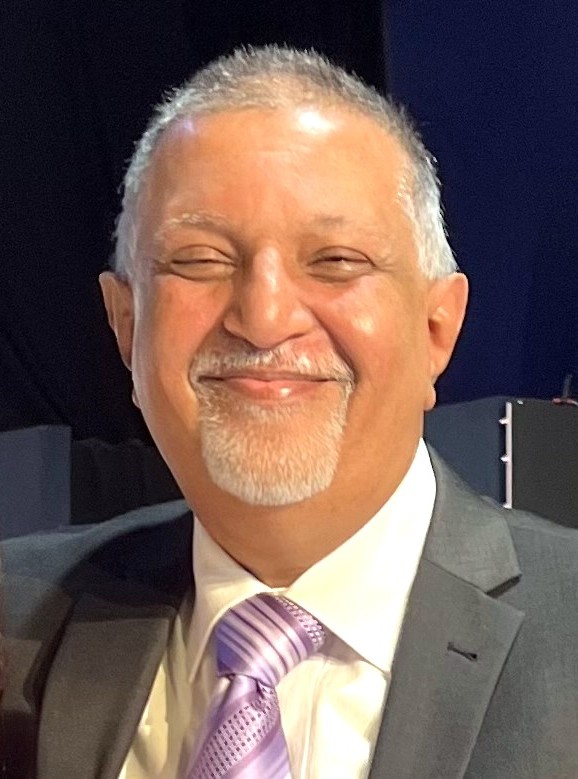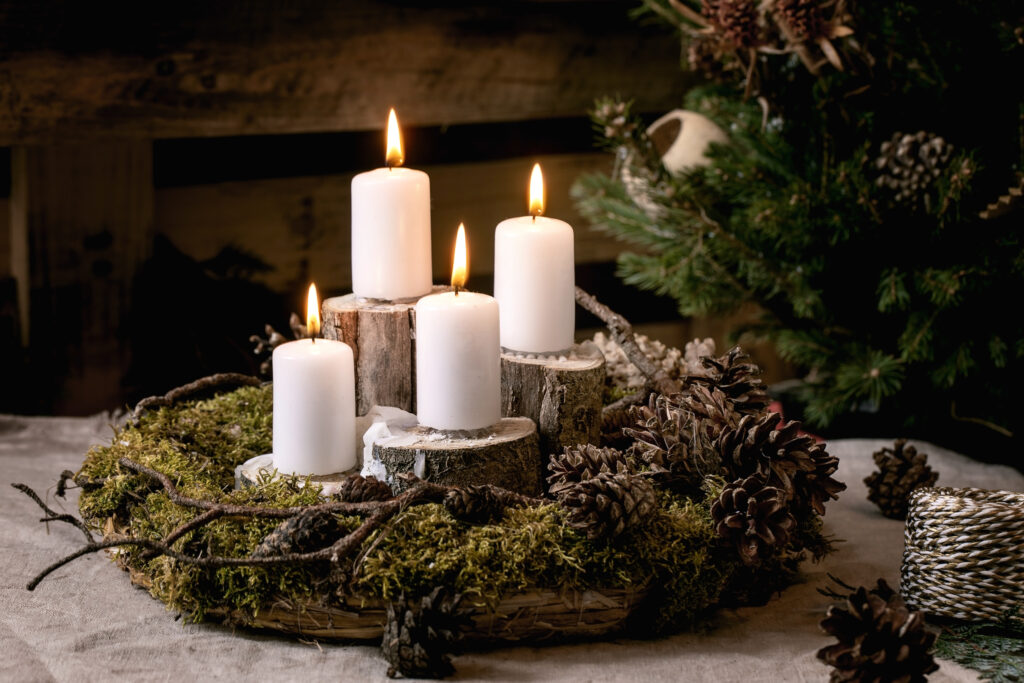Communion is a sacrament that takes on special meaning during Advent.
 By Bharat Naker, Pastor
By Bharat Naker, Pastor
Carina and Logan, Queensland, AU
At age 16, leaving my forebears’ faith, I was drawn strongly to Christ. I was especially excited about his second coming. Looking back 50 years, it certainly has been an adventure! Adventure’s etymology is rooted in the Latin adventura meaning “that which must happen” or “what is about to happen.” My passion for Christ’s coming was real but immature. I desired to know when Christ would come. I take comfort that the disciples asked the same question: “Lord, is this the time when you will restore the kingdom to Israel” (Acts 1:6 NRSVUE)?

We are right to be kingdom focused. As we mature in how we live out the reality and hope of the kingdom, the Advent season helps us focus and is an opportunity for growth. What communal practices can help us and be a blessing in our celebration of the four Sundays of Advent? Maybe your congregation has ideas to share. (Add them in the comments section.) Here are some thoughts:
Perspective
It took time for me to learn that I needed to also “know” and be passionate about Jesus’s first coming (the Incarnation) and about his work in this age through his Spirit in his Body. I’m grateful that we can now celebrate the Birth, Life, Death, Resurrection, Ascension, Reign, and the “soon coming” Return of Jesus in our annual worship calendar.
The direction of our Advent and Christmas celebrations moves from future to the past. Here’s how author, Laurence Hull Stookey, describes it:
We start the Advent observances with the future. “The reign of God is coming. Prepare!” We end with the past: “Messiah will be born in Bethlehem. Rejoice!” … that the sacred story, to be understood aright, has to be read backward. Just as the birth and ministry of Jesus are incomprehensible until we know the Lord’s death and resurrection, so too the whole of the past is muddled unless first we have a grasp on the nature of the future.[1]
Allow me to draw your attention to one very important formational practice: communion. Communion is a sacrament that takes on special meaning during Advent.
The Eucharist is a unique blessing in the Advent season because of its past, present, and future connotations. For this season, meditate on the following quote from author, Rowan Williams:
In the Eucharist we are at the centre of the world: we are where Christ, the Son, gives his life to his Father in the Spirit. And in the Eucharist we are at the end of the world: we are seeing how the world’s calling is fulfilled in advance; we are seeing ourselves and our world as they really are, contemplating them in the depths of God, finding their meaning in relation to God. … ‘With you is the fountain of life’, says the psalm; and it is that fountain that we drink from in Holy Communion.[2]
Below are a few more ideas for Advent:
Wreath and Candles
We celebrate not just by listening but by seeing and participating. One helpful way is through the lighting of the Advent candles for Hope, Peace, Joy and Love as Advent Sundays pass. The below link gives more guidance.
Advent Readings and GCI Videos
The lighting of the candles can include Advent readings as well as readings throughout the service. The GCI Advent videos are another wonderful resource.
Advent Symbols and Readings (includes links towards the bottom of the pdf for access to Advent PowerPoint slides and readings)
Jesus Revealed Through the Worship Calendar (2023-2024) – YouTube
Connect Groups
Small group formats can also be helpful. This could be done by encouraging four weekly connect groups (depending on the size and spread of the congregation) through the Advent season. The theme and Scriptures discussed each week could follow the pattern of the Hope, Peace, Joy, and Love sequence.
Wishing you an adventurous Advent season!
[1] Laurence Hull Stookey, Calendar: Christ’s Time for the Church (Nashville: Abingdon Press, 1996). 121
[2] Rowan Williams, Being Christian: Baptism, Bible, Eucharist, Prayer (Grand Rapids, MI: Eerdmans, 2014), 59.



Please note that comments are moderated. Your comment will not appear until it is reviewed.